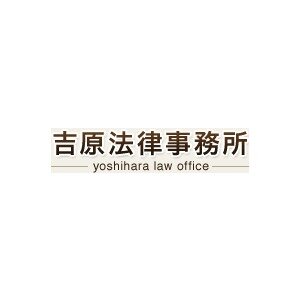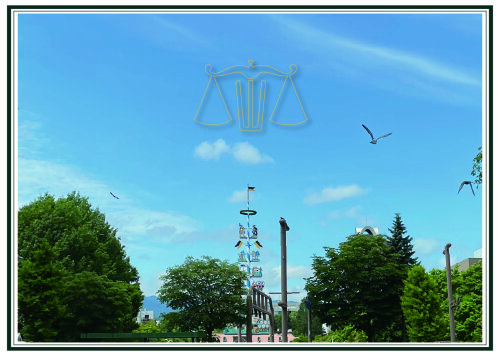Best Construction Accident Lawyers in Sapporo
Share your needs with us, get contacted by law firms.
Free. Takes 2 min.
List of the best lawyers in Sapporo, Japan
About Construction Accident Law in Sapporo, Japan
Construction accident law in Sapporo, Japan, encompasses legal regulations and frameworks aimed at protecting workers and individuals who may be injured on construction sites. Construction projects are inherently risky, and accidents can lead to significant injuries or even fatalities. The legal system in Sapporo strives to ensure that construction sites adhere to safety standards and that victims receive fair compensation for their injuries. These laws are part of broader Japanese occupational safety regulations managed under both national and local jurisdictions.
Why You May Need a Lawyer
There are several situations where individuals involved in construction accidents may need legal assistance:
- Personal Injury Claims: If you are injured on a construction site, a lawyer can help you navigate the process of seeking compensation for medical bills, lost wages, and other related expenses.
- Worker's Compensation: Employees may need legal help to file worker's compensation claims or to appeal denied claims.
- Third-Party Liability: If your injury was caused by a party other than your employer, such as a subcontractor or equipment manufacturer, a lawyer can assist in pursuing additional claims.
- Employer Liability: In cases where an employer is believed to have neglected safety protocols, legal counsel may be necessary to address these issues.
- Wrongful Death Claims: Families of workers who have died due to a construction accident may require legal support to pursue wrongful death claims.
Local Laws Overview
The laws regulating construction accidents in Sapporo are influenced by national Japanese labor laws and additional regulations at the local level. Key aspects include:
- Occupational Safety and Health Regulations: These require employers to provide a safe work environment, regularly inspect equipment, and adhere to safety protocols.
- Worker's Compensation Act: This national legislation mandates compensation for workers injured on the job, outlining procedures for claims and benefits.
- Tort Law: This derives from Japan's Civil Code, allowing injured parties to seek damages from those responsible for their injuries.
- Building Codes and Standards: Local authorities enforce these to ensure the construction is carried out safely and structures are sound.
Frequently Asked Questions
What should I do immediately after a construction accident?
Seek medical attention immediately, report the accident to your employer, and document the incident scene if possible. Then consult with a legal professional.
Can I be compensated if I am partially at fault for my construction accident?
Yes, Japan follows a comparative negligence rule where compensation may be adjusted based on your level of fault.
What is the deadline for filing a construction accident claim?
The statute of limitations for filing a personal injury claim in Japan is generally three years from the date of the accident.
Do I need to prove my employer's negligence to receive worker's compensation?
No, worker's compensation in Japan does not require proof of employer negligence.
How are construction accident claims typically resolved?
Most claims are settled out of court, but some may proceed to litigation if a fair settlement cannot be achieved.
Can a foreign worker claim compensation for a construction accident in Japan?
Yes, foreign workers are eligible for worker’s compensation and should receive the same legal protection as Japanese nationals.
Is it necessary to hire a lawyer for all construction accident claims?
While it's not mandatory, having a lawyer can significantly help in navigating complex legal waters and ensuring fair compensation.
What types of evidence are important for a construction accident claim?
Medical records, accident reports, photographs or videos of the scene, eyewitness statements, and safety violations documentation.
Can I file a claim against a subcontractor or equipment manufacturer?
Yes, if they contributed to your injury due to negligence or defective products.
Are there different laws for accidents involving heavy machinery?
Specific regulations may apply depending on the machinery used and the nature of the accident, requiring detailed legal analysis.
Additional Resources
Here are some resources and organizations that may be helpful:
- Sapporo Labor Bureau: Provides information on local labor laws and worker safety.
- Japan Federation of Bar Associations: Can assist in finding qualified legal professionals specializing in construction accident law.
- Ministry of Health, Labor and Welfare: Offers resources and guidelines regarding workplace safety and compensation.
- Health and Safety Executive in Japan: Focuses on enforcing health and safety regulations on construction sites.
Next Steps
If you need legal assistance with a construction accident in Sapporo, consider taking the following steps:
- Document the Incident: Gather all pertinent information and evidence regarding the accident.
- Consult a Medical Professional: Ensure your health and safety are prioritized with proper medical attention.
- Contact a Lawyer: Seek a qualified lawyer with experience in construction accident law to evaluate your case.
- File Necessary Claims: Work with your lawyer to file worker's compensation or other relevant claims promptly.
- Remain Informed: Keep in contact with your lawyer and stay updated throughout the legal process to ensure the best possible outcome.
Lawzana helps you find the best lawyers and law firms in Sapporo through a curated and pre-screened list of qualified legal professionals. Our platform offers rankings and detailed profiles of attorneys and law firms, allowing you to compare based on practice areas, including Construction Accident, experience, and client feedback.
Each profile includes a description of the firm's areas of practice, client reviews, team members and partners, year of establishment, spoken languages, office locations, contact information, social media presence, and any published articles or resources. Most firms on our platform speak English and are experienced in both local and international legal matters.
Get a quote from top-rated law firms in Sapporo, Japan — quickly, securely, and without unnecessary hassle.
Disclaimer:
The information provided on this page is for general informational purposes only and does not constitute legal advice. While we strive to ensure the accuracy and relevance of the content, legal information may change over time, and interpretations of the law can vary. You should always consult with a qualified legal professional for advice specific to your situation.
We disclaim all liability for actions taken or not taken based on the content of this page. If you believe any information is incorrect or outdated, please contact us, and we will review and update it where appropriate.









